Serving Students as a “Concierge of Education”
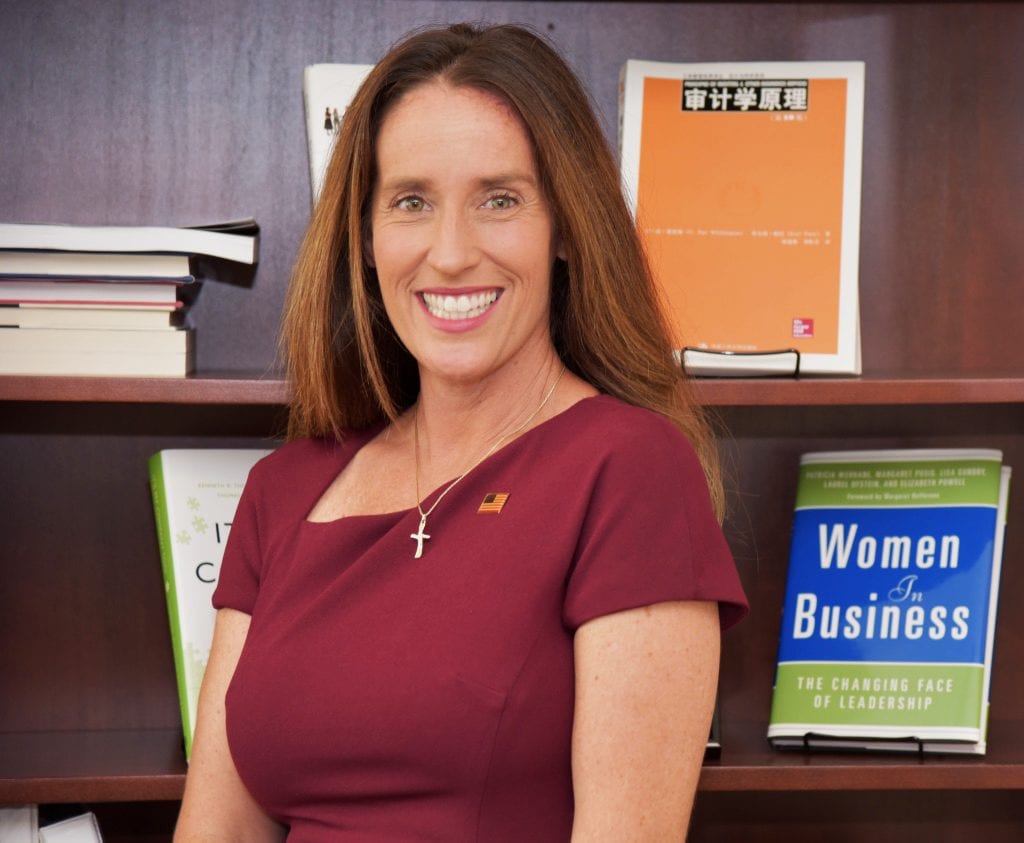
July marked the one-year anniversary of Misty M. Johanson’s tenure as leader of the Driehaus College of Business. She was recently named a “Notable Woman in Chicago Education” by Crain’s Chicago Business, which highlighted her role in promoting strategic enrollment growth, student success and industry-college engagement. An award-winning teacher and prolific scholar, Johanson joined DePaul in 2009 to help establish the college’s School of Hospitality Leadership, which she directed for four years. She previously served as an associate dean of the college, overseeing areas that include academic quality, accreditation and alumni/industry relations.
In this Q&A, Dean Johanson looks back on her first year as dean and ahead at the college’s future, which will be guided by a new strategic plan that will be completed this fall.
How does your expertise in hospitality leadership and human resources influence your approach to leading the college as dean?
When you look at hospitality organizations, such as hotels, many offer similar products and experiences. The ones that succeed differentiate themselves by offering more personalized levels of service and value than their competitors, and by focusing on specific markets. We’re trying to do something similar at the college by transforming how we do business in higher education.
We’re moving from a transactional delivery of programs to a much more service-oriented model. We are focusing on delivering value and establishing long-term relationships with students to build a satisfying experience for them. This means personalizing our programs and services, as well as offering stackable degrees and professional education that serve students’ needs at various stages of their careers and lives. We’re building a portfolio of student segments we serve rather than focusing on maintaining a rigid portfolio of program offerings.
Our service orientation means that, for example, with our cohort MBA programs, instead of having separate people providing recruitment marketing, advising, development and coaching, we’re having a dedicated person provide all of these services for specific segments of students.
We’re also strengthening our relationships with industry to support this model. We are forming partnerships with companies and associations to deliver MBA and MS degree programs onsite for their employees. This serves both the employees’ career advancement goals and the organization’s workforce development plans.
At the undergraduate level, we are partnering with major Chicago employers to create mentoring and career development programs. This adds value for our undergraduate students because it provides experiential learning and skills that enable them to place in good positions after graduation, while also adding value for our partners who are seeking to access to career-ready graduates.
In short, we see ourselves as a concierge of education.
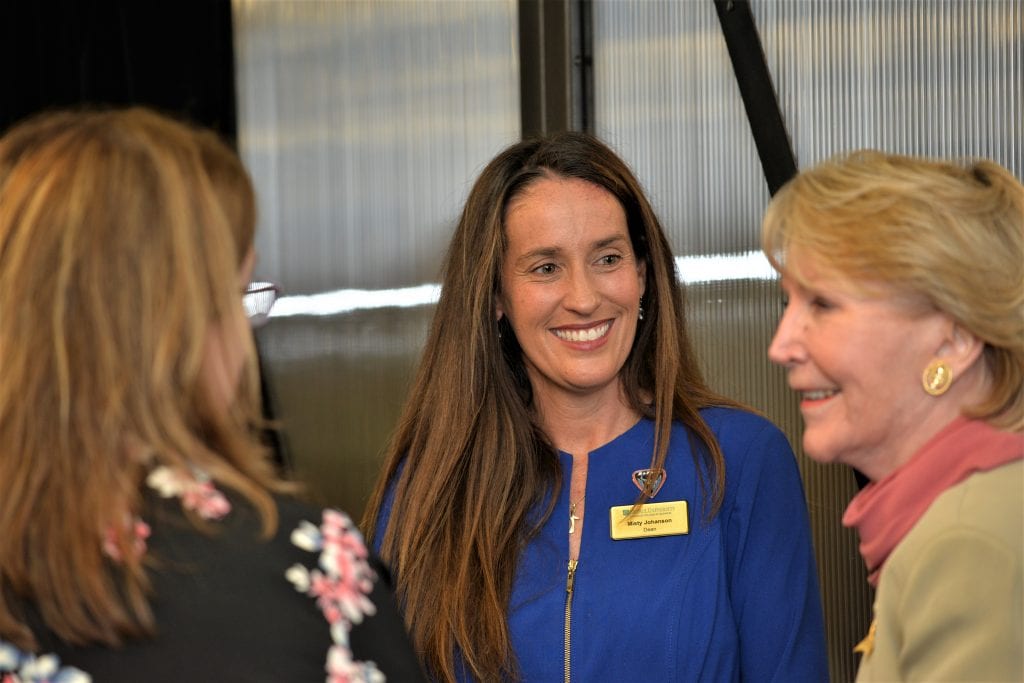
What’s different about Generation Z, the generation the college is currently recruiting, compared to past generations of students?
Students in this generation have grown up as “screenagers” – they are immersed in technology. They are not high-tech experts necessarily, but they are accustomed to communicating and in some ways learning through high tech phones and gadgets. And this has created a challenge in higher ed for developing their soft skills, especially their written and oral communications skills, which are essential for succeeding in any career field.
The other part of this is that this generation is looking for a lot of hands-on support, especially when they are going away to college. This fits well with our move to a more service-oriented culture. They seek personalization, high-touch engagement and for their needs to be met. So, it’s important that our advising offices, faculty and academic units know who each student is, where they need to go academically and what skills they need to develop. By keeping our classes small and the experience personalized and high-touch, we are adding the value that this generation – and their parents – look for in a university.
When a parent asks ‘Why should I send my son or daughter to study business at DePaul?’, how do you respond?
DePaul has an unbelievable business and liberal studies curriculum that provides analytical, technical and leadership skills. But other universities could say the same thing. So the question is, what differentiates us? What is our value proposition?
At the college we have an opportunity to add value through our centers and institutes. They have different missions and purposes, but most offer the opportunity to support the student and the student experience by engaging alumni and industry partners with students, faculty and the life of the college.
What we’re doing is developing new programming at these centers and institutes in the form of co-curricular plans for students that will go along with their curricular plans. These plans support what students are learning in the classroom with mentorships, internships and hands-on learning experiences involving our industry partners, and soft skills development.
The model for this is the Marriott Foundation Center for Student Development and Engagement at the School for Hospitality Leadership, which was endowed in 2016. Students take introductory classes in hospitality leadership, hotels, etc. while getting internship experience and skills development. They are learning skills such as how to get a job, how to review their résumés, how to make the 30-second elevator speech, etiquette training so they know how to properly dine at work events and use social media properly. As their academic scores grow and their internship experience deepens, the center matches students to additional soft skills training.
This has come to fruition beautifully; these students have extremely high learning outputs and extremely high placement rates because they are graduating with technical and analytical skills as well as career skills and experience. The center’s success also has helped us to expand the school’s advisory board to include the who’s who in the field because of the high caliber graduates we are producing.
Our plan is to expand this model to other relevant centers at the college. Our fundraising and engagement priorities are to seek support from alumni and donors who want to be part of these efforts to engage our students and faculty with industry and alumni through our centers. We’ve already had success creating two new student success hubs with the launch of the Keeley Center for Financial Service in our finance department and the Office of Student Success and Engagement at the School of Accountancy. Now we’re turning our attention to creating success centers in other areas, including real estate, marketing and leadership.
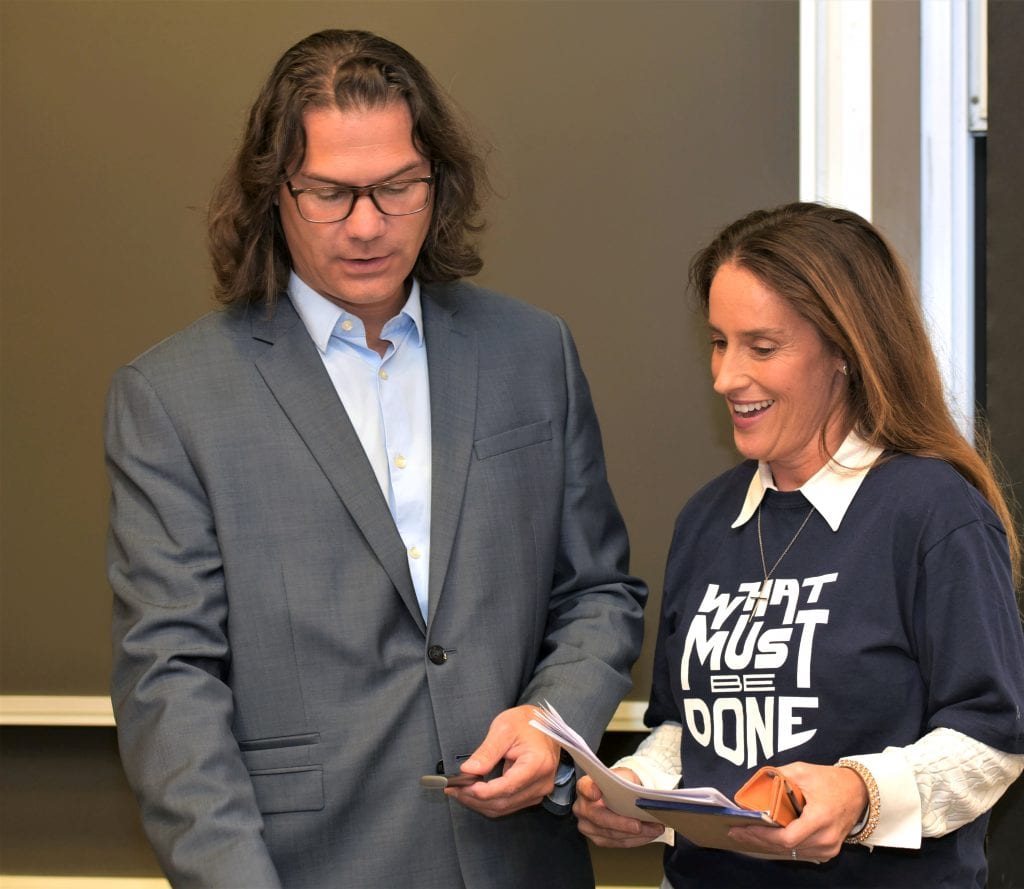
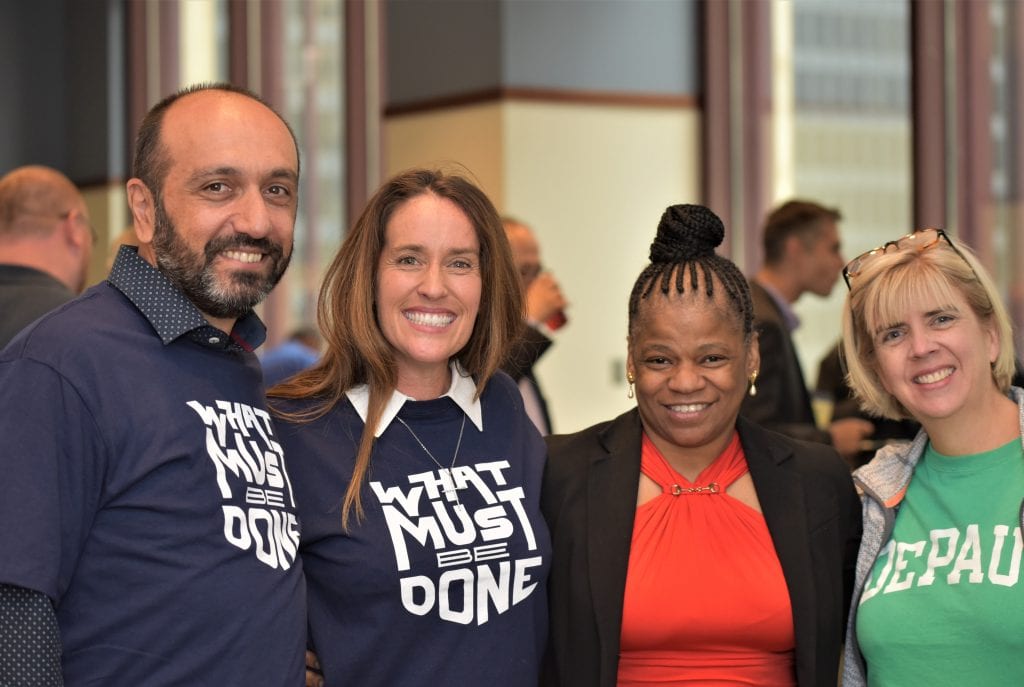
What are the highlights from your first year as interim dean and then dean?
In addition to the student success initiatives I mentioned earlier, we are focusing on innovative initiatives such as the recently launched Women in Entrepreneurship Center. The institute supports women entrepreneurs through education, business plan competitions, and research into how to improve the investing climate for women-owned startups. It’s a great initiative that has already attracted support from an extremely strong board and we’re continuing to raise funds for it.
I’ve also made it a priority to support diversity and inclusion at our college. I’m reaching out to develop leadership opportunities for our women faculty and faculty of color.
This fall our enrollment was solid, supported by our strategies to build relationships with students and partner with companies to offer onsite graduate programs. The Doctorate in Business Administration just graduated its first class. We launched a new Master’s in Business Analytics degree this fall and enhanced our analytics course content throughout the curriculum to provide students with skills that are sought-after in the marketplace. We’re looking to create an analytics center.
It’s been a fantastic year with more to come.
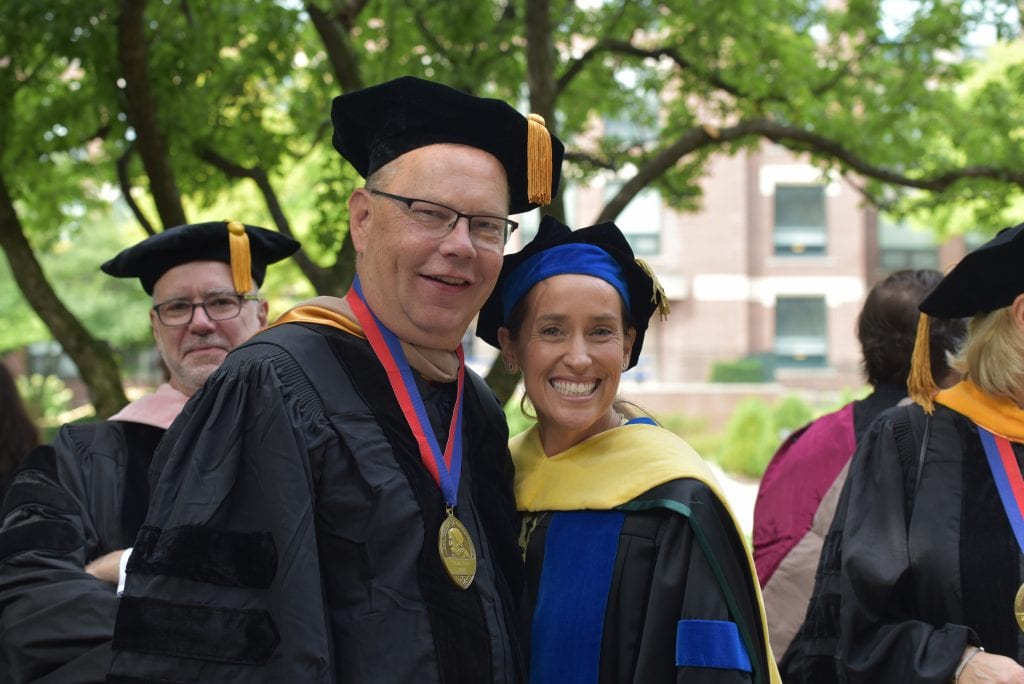
What’s in store for the college in its new strategic plan, which will be completed for launch in January 2019?
Over the last year the university completed its strategic plan, Grounded in Mission, and did it differently than the university ever done before, not only setting baseline metrics and goals but also aligning dollars to support initiatives within the strategic plan.
At the college, I pulled together a group of advisory board members, who are alumni and industry leaders, students, faculty from all ranks, staff and college leadership to discuss how to do our strategic plan. With guidance from the president’s office, we built our framework based on the higher education challenges and opportunities that are happening not only in the business college but in higher education as a whole. We looked at challenges in the economy and factors such as there being fewer college-aged students in Illinois. We also looked at how DePaul is positioned — we need to compete with lower-priced public institutions as well as private universities that have similar academic profiles. We need to understand how this impacts DePaul and how we should position ourselves to add value through our strategic plan.
We came up with three defining pillars that are the basis of our plan — supporting academic excellence, engaging the Chicago business community and alumni,elevating the reputation of the college. We’re focusing on our value proposition, and I believe we have a really great opportunity to address our challenges and create value through the greater service orientation and the student success centers mentioned earlier, among other strategies.
We’ve come up with six key initiatives, and this fall units throughout the college have been asked to create strategic tactics to carry out these initiatives, align with the pillars, and move us into the future.
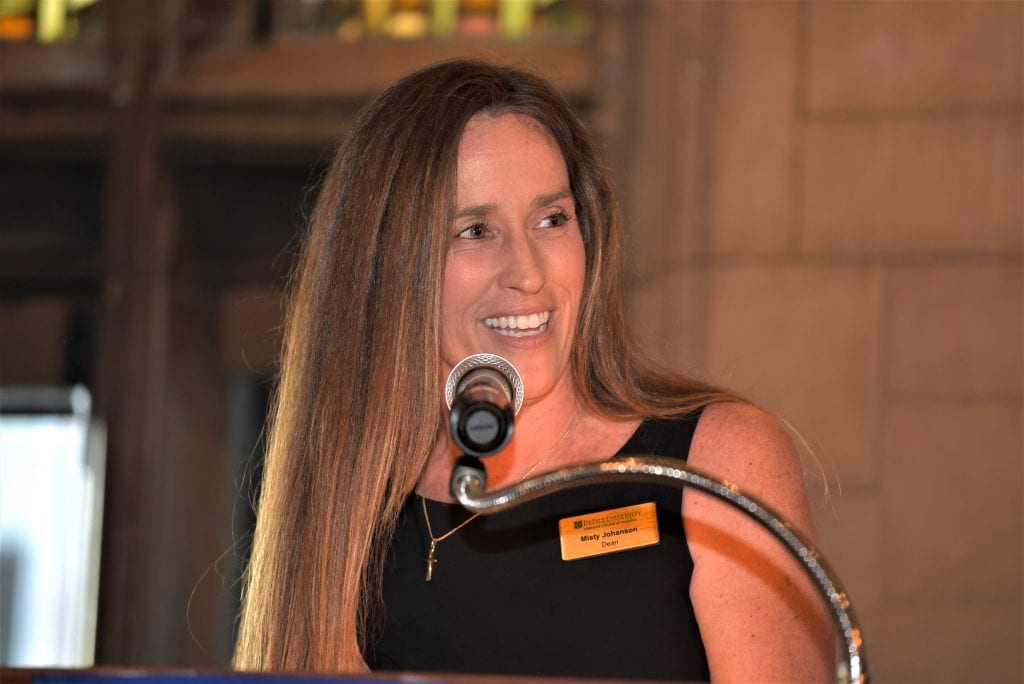
How do you see alumni and the business community contributing to the achievement of the college’s strategic goals?
There’s no better group of individuals to inspire the next generation of Driehaus alumni than our past alumni. We want to connect alumni to current students to provide mentorships—have alumni talk with them about what their challenges were, what pitfalls to look out for, and how to take advantage of opportunities in their future careers.
Mentoring programs are the hallmark of the student success centers we are developing. We want to provide more opportunities for one-on-one engagement between alumni and students, as well as alumni and industry engagement with student groups, center activities and with faculty members. We need to have deeper alumni engagement with the college and offer better mentoring than before, and encourage “hire DePaul” better than we ever have before — and offer more reasons for the alumni to be engaged.
We’re looking at ways to expand the success of Alumni University by offering more professional development and enrichment opportunities for alumni online. There’s a demand for continuing education among alumni and we’re exploring ideas for creating ongoing seminars.
We also want to expand our corporate connections, especially with Chicago organizations, that employ a lot of DePaul alumni. We’re looking at what these alumni are doing to engage with each other and the college — are they hiring DePaul (graduates) and are they seeing the college as a source of degrees and continuing education that will help them advance?
We’re looking at how we can take these initiatives to the next level—how can we collectively add value and create a win-win for our students and our alumni.
Photos by Kathy Hillegonds
